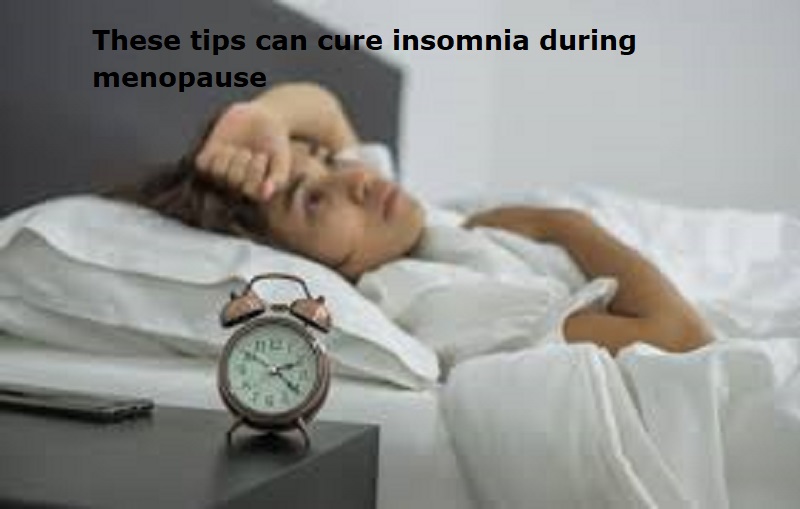
Menopause begins either in the early 40s or the late 50s. Menopause is the time in a woman’s life when her body stops making progesterone and oestrogen, which leads to the end of the menstrual cycle. Menopause marks the end of a woman’s reproductive years. As the body’s estrogen level drops, it hinders the ability to naturally ovulate. Menopause can trigger a range of symptoms, affecting every woman differently. Women dealing with menopause faces mood swings, hot flashes, and are being unable to fall asleep.
One of the most prevalent symptoms of menopause is insomnia. In a video shared on Instagram, nutritionist Lovneet Batra expands on the factors that affect your sleep pattern during perimenopause and menopause.
‘Sleep disturbances are very common during perimenopause and menopause. It is due to declining oestrogen and also due to declining melatonin levels. But there are ways you can address this through the right foods. Number one, foods that are rich in phytoestrogen. So include more tofu, flax seeds and chickpeas in your diet. Also, up your omega-3 intake naturally. So this could be through walnuts, ghee, flax seeds or roasted flax seeds. And tryptophan-rich foods in your diet, especially in the second half of the day, which would be yoghurt, homemade curd, rich and roasted pumpkin seeds,’ says Lovneet Batra.
Also Read: Simple steps to avoid bad breath
Lovneet Batra lists down all the factors that affect your sleep pattern during menopause.
1. Hormonal changes: Reduction of oestrogen levels in your body affects your sleep pattern.
2. Lifestyle factors: Obesity, smoking and intake of caffeine and alcohol could blunt sleep.
3. Melatonin reduction: During menopause, one usually suffers a reduction in melatonin, which could contribute to poor sleep.
Here’s how to combat these sleep disturbances:
1. Include foods high in phytoestrogens, such as whole grains, legumes, fruits, vegetables and flaxseed in your diet. These organic foods might lessen the effects of oestrogen decline, easing hot flashes and encouraging peaceful sleep.
2. Dietary intake of foods rich in omega-3s, such as ghee, nuts and seeds, fish and seafood, is associated with a reduced prevalence of major depression. Omega-3 fatty acids also positively impact mental health
3. As menopause lowers oestrogen levels, it’s important to maintain stable blood sugar levels and eat meals low on the glycemic index to avoid midnight cravings that keep you up at night.
4. You can also enhance the quality of your sleep by including dietary sources of tryptophan, such as milk, chamomile tea, pumpkin seeds, beans, peanuts and leafy green vegetables in your meal.
5. Refrain from drinking alcohol and caffeine since they can disrupt your sleep pattern.

Post Your Comments